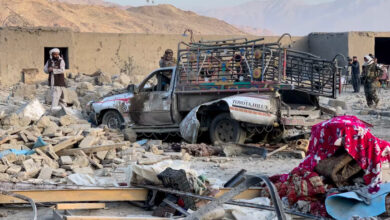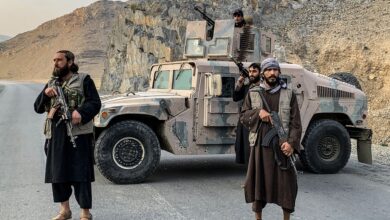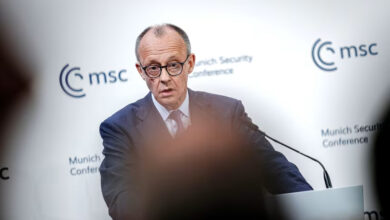
NATO leaders gather in Chicago on Sunday for a summit that will chart a path out of Afghanistan, as Western nations seek to fend off fissures in their alliance and ensure Afghanistan can hold a still-potent Taliban at bay when foreign troops withdraw.
President Barack Obama hosts the summit in his home town, Chicago, a day after leaders of major industrialized nations tackled Europe's debt crisis, backing keeping Greece in the euro zone and vowing to take steps necessary to revitalize the world economy.
The shadow cast by fiscal pressures in Europe and elsewhere will follow leaders from Obama's presidential retreat in Maryland to the talks on Afghanistan, an unwelcome weight on countries mindful of dwindling support for a costly campaign that has not defeated the Taliban in more than 10 years.
The Obama administration, looking ahead to November presidential elections, is expected to emphasize a common alliance vision for gradually pulling most of the NATO force of around 130,000 by the end of 2014. It will also highlight Afghanistan's strides toward taking charge of its own security.
In addition to the shared fiscal stress, the talks may be characterized by undercurrents of dissent between leaders in Washington, Brussels and other nations, like France, who are more eager to go home.
France's new leader, Francois Hollande, repeated a pledge during his inaugural visit to Washington last week to pull "combat troops" from Afghanistan this year. He has said an extremely limited number of soldiers would remain to train Afghan forces and bring back equipment beyond 2012.
"This decision is an act of sovereignty and must be done in good coordination with our allies and partners," said Hollande, who will discuss his exit plans with Afghan President Hamid Karzai on Sunday.
Yet Hollande has declined to define the details of his withdrawal, saying that was France's "business."
The careful French comments, leaving room for various interpretations, illustrate the balance NATO leaders strike as they seek to avoid the appearance of splits with NATO partners without alienating voters who want to see a swift exit.
Alliance leaders may use the same approach in discussions this weekend of long-term funding for Afghan police and army, whose ability to battle the Taliban is at the core of NATO strategy for exiting Afghanistan smoothly.
The Obama administration has been seeking promises from its allies in Afghanistan to give US$1.3 billion a year for Afghan forces. While there are few doubts allies will eventually provide support, it appeared unlikely heading into the summit that it would meet that goal by the end of the meeting.
Shadow of fiscal woes
A last-minute addition to the list of leaders at the carefully choreographed meeting is President Asif Ali Zardari of Pakistan, whose western tribal areas provide shelter to militants attacking Karzai's government and NATO forces.
Zardari may encounter friction in interactions with NATO leaders who have been pressing Islamabad to reopen routes used to supply NATO soldiers in Afghanistan. Pakistan shut those routes in protest when US aircraft killed 24 Pakistani soldiers along the Afghan border in November.
It's unclear whether a deal reopening those roads will occur this weekend as US officials had hoped earlier in the week.
Severe fiscal pressures, including plans for major cuts to defense spending Europe and the United States, are sure to color the talks in Chicago, as they did those between G8 leaders.
The overarching message from that G8 summit reflected Obama's own concerns that euro-zone contagion, which threatens the future of Europe's 17-country single currency bloc, could hurt a fragile US recovery and his re-election chances.
The G8 leaders, hoping to put years of financial turmoil behind them, also said the global economic recovery showed promising signs but that "significant headwinds persist."
Austerity has played a role in NATO leaders' efforts to make progress on "smart defense" — making resources go further by encouraging NATO allies to share key capabilities.
NATO is expected to announce a milestone in the effort to provide a pan-European missile defense system, which has now has reached "interim capability." It will also formally endorse an agreement for 14 countries to jointly purchase five US-made unmanned drone aircraft.



